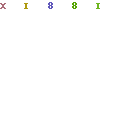
Terrorism returns to Miami
By Jesús Arboleya Cervera
 HAVANA – Finally, Miami’s Fire Department confirmed what the whole world knew and the FBI had refused to confirm: an incendiary bomb, delivered with the skill of an expert, destroyed the offices of the Airline Brokers travel agency, announcing the return of terrorism to the city.
HAVANA – Finally, Miami’s Fire Department confirmed what the whole world knew and the FBI had refused to confirm: an incendiary bomb, delivered with the skill of an expert, destroyed the offices of the Airline Brokers travel agency, announcing the return of terrorism to the city.
Without the support of important groups of power in the United States, Cuban-American terrorism would never have existed. In fact, it was the CIA that created most of those groups during the 1960s. The complicity of the police forces turned Miami into a “war zone” when Carter’s administration attempted to reform U.S. policy toward Cuba.
Through the Cuban American National Foundation, Ronald Reagan controlled those groups at his discretion and used them selectively to serve the interests of his government. Cuban-American terrorism continued to be a latent threat to anyone who opposed the far right, until the events of Sept. 11, 2001, created a contradiction that seemed definitive between the activities of those groups and the foundations of the new U.S. strategy worldwide.
Although no Cuban-American terrorists were ever caught as a result of the “war on terrorism,” apparently they received orders to suspend their activities from the administration of George W. Bush. This was accompanied by economic inducements and political support aimed at turning them into “peaceful fighters for freedom and human rights in Cuba.”
I imagine that many of them, not without some nostalgia and facing an uncertain future, buried weapons and explosives in the Everglades or simply hid their arsenals in their homes, so they could compete for the crumbs of the “Cuban programs” sponsored by the government and serve as “activists” for Miami politicians.
The case of Luis Posada Carriles opened a Pandora’s box, since it demonstrated the U.S. government’s incapacity to deal with the problem that he himself had created and that involved U.S. institutions, functionaries and politicians for half a century. This demonstrable weakness was powerful encouragement for the terrorist groups, which again felt untouchable. Evidence of this is the bomb placed at Airline Brokers.
It was not an ordinary attack, but one that was directed against the agency that, in collaboration with the Archdiocese of Miami, had organized the trip of Catholic pilgrims to Cuba during the visit of Pope Benedict XVI.
It was a message to the Cuban-American “moderates” who sponsored the trip and against the Cuban Catholic Church, which had propitiated a policy of dialogue with the country’s authorities.
In addition, the Church has been the target of wild verbal attacks from the far right, with the tacit support of the government, as demonstrated by the editorials against Cardinal Jaime Ortega broadcast over Radio and Televisión Martí.
Nobody knows if some politician from Miami’s far right was an accomplice to this attack – which would explain his or her silence – but no matter. The bombing served the purpose of scaring those who favor a change in U.S. policy toward Cuba and enabling the far right to maintain control over the Cuban-American community, a control that is increasingly questioned.
Its result can be noted in the discreet attitude around the event. In addition to the silence from the U.S. authorities and far-right politicians (for reasons that are obvious), most of the news media have reported the bombing with an “objectivity” that is unusual in their style and tradition. No media outlet has condemned the deed, much less dared to denounce its perpetrators.
Nor do I hear that the moderates have pronounced themselves on the subject. Rather, their most recent statement, three days after the attack, “urged the Cuban government to release all the defenders of democracy that are in prison,” as if, by burying their heads in the sand, the moderates could save themselves from the beast that’s coming to devour them.
The same has happened with Miami’s Catholic Church. Only the groups that advocate the normalization of relations between the two countries, along with press outlets such as Radio Progreso and Radio Miami – themselves frequent victims of terrorism in the past – have clearly expressed their condemnation of the attack.
Apparently, the terrorists have achieved the objective of again instilling fear in the political conduct of their adversaries. One can understand why the latter are terrified to realize that the dam that held back terrorism in Miami for several years has been breached.
We return, then, to the original equation. Can Barack Obama’s government halt Cuban-American terrorism or will he – like Carter – be a hostage to the forces that have historically been committed to those groups? The answer to this question could define the immediate future of Miami politics.
The indifference of U.S. public opinion is not a good signal. Although the news about terrorist acts seize the headlines, the Joint Terrorism Task Force, which tracks down Muslims and white fundamentalists with equal zeal, has decided not to get involved with the Cuban-Americans.
Perhaps the Task Force thinks it’s a waste of time to pursue terrorists who are never tried in court, much less in a period of elections.
Progreso Semanal/ Weekly authorizes the total or partial reproduction of the articles written by our journalists, so long as the source and author are identified.

